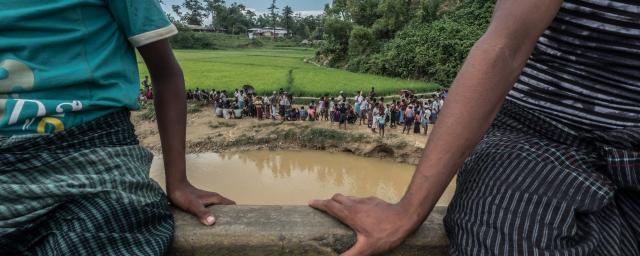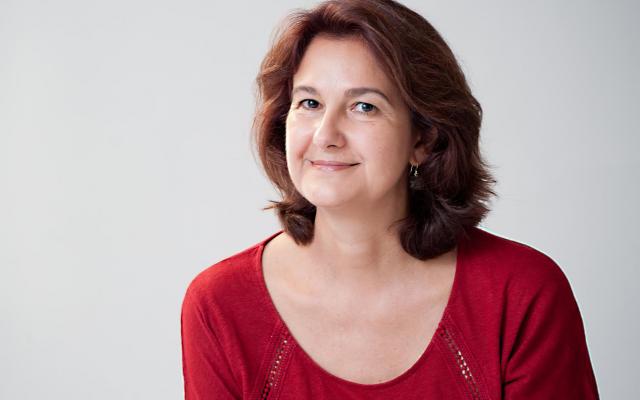
Oxfam works in 67 countries across seven regions and with more than 3,500 partner organizations. We work with our partners to promote a safe programming approach that promotes accountability to the communities we work for. Photo: Tommy Trenchard/Oxfam
“Oxfam already has clear reporting processes within all the communities where we work. However, we are now shifting our focus beyond the quality of our work to get feedback about how Oxfam staff and partners are behaving.”
My name is Rosa Sala and I’m Oxfam International’s Program Operations Director. We work in 67 countries across seven regions and with more than 3,500 partner organizations, so when we talk about transforming our work, we do so within a highly diverse confederation across different cultures, laws and languages.
In some places, Oxfam’s work is very hands-on, especially in fragile states and during humanitarian responses. Our Global Humanitarian Team (GHT) has always placed a high priority on safe programming – by which we mean that all Oxfam’s humanitarian responses must include proactive measures to ensure we do not inadvertently cause harm to people nor undermine the values that underpin our work.
This past year, we have invested extra resources in safeguarding capacity for the GHT, including through two full-time Safeguarding Humanitarian Support Personnel, like Ceri Cockram who’s experience in Mozambique and Ethiopia is highlighted in this report. GHT has improved its safe programming approach by rolling out new toolkits and training, along with extra funding into some program countries to test and socialize them all.
We’re adapting these practices and tools in our long-term development work too, both when Oxfam is directly implementing work with communities and also in our partnerships with others. Our partners range from small grassroots groups to much larger organizations, bigger even than Oxfam. We are involved in deep learning and exchanges with them all. Please also refer to the report from Timor-Leste by Kathy Richards for further information.

Rosa Sala, Oxfam International’s Program Operations Director
Oxfam already has clear reporting processes within all the communities where we work. However, we are now shifting our focus beyond the quality of our work (i.e. “is Oxfam helping to make a positive difference”) to get feedback about how Oxfam staff and partners are behaving, including potential complaints of exploitation and abuse. This is an essential part of a Safe Programming approach that promotes accountability to the communities we work for. Oxfam is also working with its partners to promote this safe, accountable programming approach, including through minimum standards, capacity building, and risk assessments that include the risk of sexual exploitation and abuse and child abuse.
In order to promote safeguarding in our programmes, Oxfam has increased its Safeguarding capacity through regional safeguarding advisors. We are also planning to recruit full-time safeguarding officers in a number of high-risk countries.
Furthermore, the Oxfam Integrity Fund is operational, and is a resource for Oxfam staff and partners to use for training and capacity building on safeguarding, and also to tackle other issues related to living our values, financial management, conflict of interest, abuse of power and corruption. We are now taking measures to top up this fund including by embedding safeguarding within our regular proposals to donors.
We are currently building out Oxfam’s overall plan and budget for 2020-21, which is an opportunity to review each of our 67 country reports that identify resource gaps and action plans on safeguarding. We will use this process to make decisions about what can be achieved through central and regional teams, and also where synergy can be created between countries to deliver joined up results.